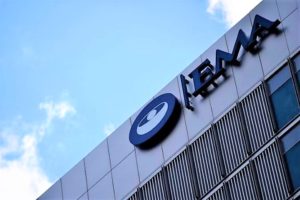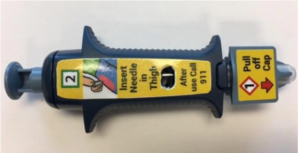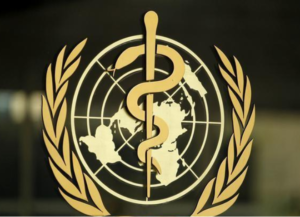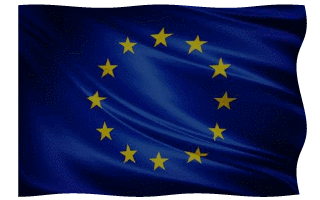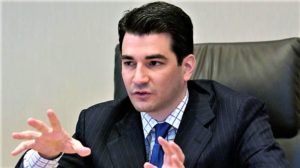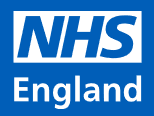- EU watchdog concerned drug agency EMA may be too close to companies (reuters.com)
The European Medicines Agency, eager to accelerate access to promising new drugs, may be getting too cosy with the pharmaceutical companies it regulates...That is the concern of the watchdog charged with overseeing administrative irregularities in the European Union, which is launching a strategic inquiry to see if early-stage interactions with firms could influence agency approval decisions...The probe by the European Ombudsman will focus on meetings and discussions between drugmakers and agency officials before a new medicine is formally submitted for regulatory approval...Such "pre-submission activities" have grown in importance in recent years as the EMA has sought to fast-track important new treatments through special arrangements designed to streamline the approval process...Some in Europe, however, fear that moves to accelerate marketing authorizations, including by promoting "adaptive pathways" for clinical trials and designating some products as priority medicines, will increase risks. Critics include Germany's IQWiG, which plays a key role in determining the cost-effectiveness of drugs.
- FDA approves new, cheaper rival to EpiPen allergy shot (ktvn.com)
U.S. regulators have approved new competition for EpiPen, the emergency allergy medicine that made Mylan a poster child for pharmaceutical company greed...The Food and Drug Administration on Thursday approved Adamis Pharmaceuticals Corp.'s product, which should go on sale later this year...Symjepi is a syringe prefilled with the hormone epinephrine…Adamis says its product is easier to use than Mylan's EpiPen, a spring-loaded syringe filled with a set dose that comes with a training device...Symjepi also is smaller than EpiPen, so it's easier to fit in a pocket or purse. Most children and adults with severe food or insect allergies carry a device wherever they go and leave a spare at home, school or work...Just three years ago, EpiPens accounted for nearly 90 percent of both revenue and prescriptions filled in the U.S. for epinephrine injectors and syringes...In the first quarter of this year, brand-name EpiPens only drew about 60 percent of epinephrine device prescriptions, while generic EpiPens - mostly Mylan's - had captured 38 percent of prescriptions...
- Accelerated FDA approval and pricey drugs make a rotten combo, doctors argue (fiercepharma.com)
Should drugs that win FDA approval on an accelerated path—often without strong evidence of efficacy—command the same high prices as products that undergo the full menu of agency scrutiny?...Not necessarily, two doctors contend in a new journal article. And they have some ideas for bringing the costs of those drugs way down, at least until their makers can prove they really work...Accelerated approval is a problem because it forces Medicare and Medicaid to pay for drugs that can cost hundreds of thousands of dollars and yet may not work for many patients...private insurers may decline to cover those drugs, denying patients access to products that were supposed to get to them faster...The FDA requires drugmakers who gain accelerated approval to perform post-marketing studies to prove efficacy—and therein lies an opportunity for the healthcare system to save money...(authors) propose. They suggest drug manufacturers be required to discount products until confirmatory trials are complete, or that a portion of the full price they’re charging be held in escrow until the results of the trials are available...We see the value in getting products that qualify for accelerated approval to market for patients, but we believe the price paid by taxpayers should reflect the strength of the available evidence about the drug’s clinical impact...
- WHO to help bring cheap biosimilar cancer drugs to poor (reuters.com)
The World Health Organization is to launch a pilot project this year to assess cheap copies of expensive biotech cancer drugs in a bid to make such medicines more widely available in poorer countries...The U.N. agency said...it would invite drugmakers in September to submit applications for pre-qualification of so-called biosimilar versions of two such drugs on its essential medicines list, Roche's Rituxan (rituximab) and Herceptin (trastuzumab)...The move is a boost for biosimilars which are expected to account for a growing proportion of treatments, particularly for cancer, as patents on the original branded products expire...The WHO plays a critical role in monitoring drug quality in poorer countries through its pre-qualification program, which ensures that treatments supplied by U.N. agencies such as UNICEF are of acceptable quality...
- Computer-Simulated Tests Eyed at FDA to Cut Drug Approval Costs (bloomberg.com)
Computer simulations may get a role alongside human testing as part of an effort to bring new medications and medical devices to market more quickly and cheaply...The...Food and Drug Administration outlined a proposal...to help integrate computer modeling and virtual testing as part of the regulatory approval process for manufacturers -- a step the agency said could save money while helping find cures for puzzling conditions such as Alzheimer’s disease...The average cost of developing a new medication is about $2.56 billion...and much of that goes to fulfilling the FDA’s rigorous demands for proving safety and effectiveness...The price of new technology affects the ability of people to access these new treatments...We therefore need to be mindful of the costs of our regulatory processes, to the degree that these costs also affect the availability of new innovations, and the way that they are ultimately priced…The idea of computer simulated experiments, sometimes called in silico trials, has been around for years but the FDA hasn’t provided guidance to allow the drug industry to use it in testing...The FDA has begun using computer modeling to build databases to help researchers predict how new treatments...will perform. And the agency is developing a family of "virtual patients" for testing new devices…
- FDA Guidance on Biosimilar Substitution Needs Work, Commenters Say (bna.com)
The FDA needs to clarify its standards for showing a biosimilar drug is interchangeable with the original biologic and how the biosimilar should be named and labeled, commenters said in response to an agency draft guidance...The Food and Drug Administration draft...described how an applicant can establish that a biosimilar, a highly similar, less expensive version of an FDA-approved biologic drug, can be substituted for the biologic on which it is based without a physician’s approval…If you’re a biosimilar applicant, you’re happy the FDA has provided the guidance, but you think it’s asking for too much information...If you’re the owner of the patent for the original biologic, you strongly support the need for the switching studies the FDA requires in order to show that switching from the original biologic to the biosimilar is safe. If you’re an organization that represents patients, you want assurances the interchangeable biosimilar is safe and effective for each condition for which the original biologic is approved...
- European countries offer goodies in bid to win EMA after Brexit (fiercepharma.com)
Even before European officials present the groundwork for relocating the bloc’s drug regulator, a fight has emerged between countries vying for the economic lift and status that come with hosting the authority, using perks like child care as ammo...Some 20 countries in Europe hope to host the European Medicines Agency after the U.K.’s vote to leave the union last summer...And even though the EU hasn’t announced its official criteria for the move, the countries aren’t hesitating to make their case by showcasing local lifestyle perks and more...Countries in Europe are offering language lessons, local scenery and child care as they push to win the EMA, according to the news service. They’re seeking to attract an agency that could bring an economic lift worth an estimated €1 billion and employs about 900 experts.
- Why Drugmakers Aren’t Sweating the Next Wave of Patent Losses (bloomberg.com)
Drugmakers plunged off a patent cliff earlier this decade, losing billions in sales as lucrative branded drugs lost exclusivity. An expensive lobbying effort aimed at preventing a repeat is paying off...The loss of a series of key patents for cholesterol fighters and other widely used medicines cost big-name drug companies about $82 billion in sales...forcing large-scale job cuts and a wave of deals to make up for lost revenue...Once again, the pharmaceutical industry is peering over the ledge. Over the next three years, roughly $60 billion of drug sales for companies including Roche Holding AG, Sanofi, and Eli Lilly & Co. are threatened by potential rivals…Roche may have the most at stake. It’s facing the loss of exclusivity for its three top-selling cancer drugs over the next two years, which account for more than $20 billion of its $51.4 billion in annual sales…Many of the drugs expected to lose their patent shields in coming years...are complex medicines produced by living cells, which makes replicating them more difficult...Drugmakers’ main lobbying groups, PhRMA and BIO, successfully watered down efforts to give biosimilars an easier approval process...Analysts say that given the longer approval arc for biosimilars, major drugmakers are less likely to be whipsawed by generic rivals when key medicines drop off patent. But over time, political pressure over high drug costs is expected to undercut the dominance of branded biologic drugs...
- New FDA commissioner Gottlieb unveils price-fighting strategies (fiercepharma.com)
During the campaign and since the U.S. presidential election, President Donald Trump has pledged to bring down drug costs...his new FDA commissioner is laying out some approaches the agency will take to fight high prices...Importantly, the FDA can’t regulate drug prices, but it can implement measures aimed at deterring the types of price hikes that have made so many headlines...FDA commissioner Scott Gottlieb said his agency will publish and regularly update a list of medications that are off patent and have no competition, work to improve generic review times and seek to "curtail gaming" of regulations by the industry that allows companies to extend patent monopolies….a regularly updated list of off-patent meds could "entice competitors into the market" and ultimately lower costs...The FDA will work to "improve processes that enable generic versions of complex drugs to be approved for marketing," and simplify the overall generic review process, Gottlieb said. He wants the agency to achieve those goals while "completely eliminating" a backlog of generic medications waiting for a review...the FDA will seek to stop misuse of Risk Evaluation Mitigation Strategies that have hurt generic drug developers’ ability to get samples of branded medications needed to develop copycats...
- Cancer drug pricing: the truth and the rhetoric (abpi.org.uk)Cancer Drugs Fund 'huge waste of money' (bbc.com)
In the last couple of weeks we’ve seen a number of articles in the press describing the Cancer Drugs Fund a ‘tragedy for patients’ and a ‘waste of money’...In part, this has been sparked by a recently published academic study that also claimed that several the medicines on the fund did not add value to patients – even suggesting that some did more harm than good...Sensationalist headlines about the cost of medicines are rarely a fair reflection of reality…Several of these medicines had been approved early by regulators, who decided that there was an urgency in getting them to the patients who needed them...there was little real world data available on these medicines at the time...The fact is it takes time, even after regulatory approval, to gather longer-term data to form a complete picture of the value of any medicine– the longer a medicine keeps someone alive the longer it takes to collect overall survival data...The trouble is we were – and for the most part still are – pretty far from having a perfect evidence-based way of allocating resources across the NHS…

